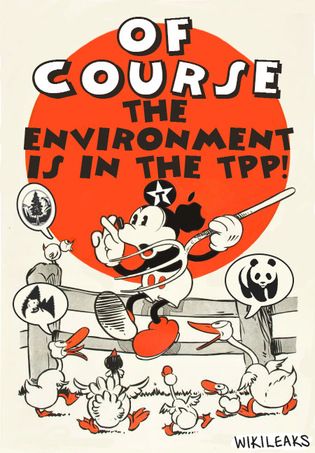These are the 16 Democrats who are supporting a senate bill that if passed could undermine the current negotiations with Iran over its nuclear program but commits the United States to a war should Israel decide to attack Iran:
Sen. Begich, Mark [D-AK]; Sen. Bennet, Michael F. [D-CO]; Sen. Blumenthal, Richard [D-CT]; Sen. Booker, Cory A. [D-NJ]; Sen. Cardin, Benjamin L. [D-MD]; Sen. Casey, Robert P., Jr. [D-PA]; Sen. Coons, Christopher A. [D-DE]; Sen. Donnelly, Joe [D-IN]; Sen. Gillibrand, Kirsten E. [D-NY]; Sen. Hagan, Kay [D-NC]; Sen. Landrieu, Mary L. [D-LA]; Sen. Manchin, Joe, III [D-WV]; Sen. Menendez, Robert [D-NJ]; Sen. Pryor, Mark L. [D-AR]; Sen. Schumer, Charles E. [D-NY]; and Sen. Warner, Mark R. [D-VA].
It’s clear why there are 43 Republicans since opposition to this administration is their default position, even start another Middle East War, but Democrats supporting for no other reason than cuddling up to the American Israel Public Affairs Committee (AIPAC), which is pushing hard for these new sanctions and the commitment to support an Israeli strike on Iran.
On Tuesday, Senator Dianne Feinstein (D-CA), chair of the Senate Intelligence Committee, forcefully voiced her opposition on the senate floor
“I sincerely believe the P5+1 negotiations with Iran would end and, with it, the best opportunity in more than 30 years to make a major change in Iranian behavior,” Feinstein argued, if the bill passes and sustains the promised Presidential veto.
The California Democrat also argued that passing the bill will embolden hard-liners in Tehran who want to see talks fail and demonstrate to American partners and the Iranians that if the U.S. can’t live up to the first-step agreement in passing a new round of sanctions – the U.S. agreed that it would not impose new sanctions while a final deal is worked out – then “it will never lift sanctions after a final agreement is reached” and thus scuttle this historic opportunity for a deal with Iran. She said later:
I deeply believe that a vote for this legislation will cause negotiations to collapse. The United States, not Iran, then becomes the party that risks fracturing the international coalition that has enabled our sanctions to succeed in the first place.
It says to the U.K., China, Russia, France, and Germany that our country cannot be trusted to stand behind our diplomatic commitments. That is a very big statement.
“Above all,” Feinstein said, if the bill passes, the Iranians “will argue that the United States is not interested in nuclear diplomacy” and instead “we are interested in regime change.”
Last night, Chris Hayes, host of MSNBC’s All In, called out the Democratic sponsors of the bill accusing them of political cowardice and betraying the president due to the influence of the AIPAC.
Noting that Senate Dems were scheduled to meet with President Obama Wednesday night, Hayes said that if he were the president, he would ask these 16 co-sponsors, “Why are you trying to get us into another war? And why are you sabotaging my presidency to do it?” [..]
Focusing particularly on Sen. Kirsten Gillibrand and Sen. Cory Booker, both of whom are believed to have presidential ambitions, Hayes next appealed to these senators’ political self-interest, noting that Hillary Clinton and John Kerry came to regret their early support of the war in Iraq. “[I]f we end up in a war with Iran,” Hayes warns, “the public will hate it – rightly – and it will be seen as a disaster, and you will be condemned by history and public opinion for your role in bringing it about.”
So far Senate Majority Leader Harry Reid (D-NV) and the Democratic leadership have held the line that there will be no vote and as The Washington Posts‘s Greg Sargent notes there is has been little push from the Democratic sponsors of the bill to bring it to the floor. As of Tuesday, one of the co-sponsors, Sen. Blumenthal (D-CT), has publicly stated that he is having second thoughts about the agreement with the announcement of an agreement on inspections.
“At the moment, there’s no rush to put the bill on the floor,” says this Senator, who asked for anonymity to be candid about the real state of play on the measure. “I’m not aware of any deadline in anyone’s head.” [..]
And there is clearly more movement behind the scenes. The Senator who spoke to me today allowed it could become “harder” for the pro-bill forces to demand a vote down the line, in the weeks and months ahead, if negotiations are proceeding with Iran.
Pres. Obama met Wednesday night with the Senate Democrats to discuss legislative strategy and the issue of Iran sanctions
On Wednesday evening, Obama delivered a “strong message” that the Senate must continue to hold off on new sanctions while negotiations continue and a six-month interim agreement is implemented, a source briefed on the meeting said. The source added that the back and forth on Iran was “not contentious.”
“The president did speak passionately about a way to seize this opportunity that we have,” said Sen. Jeff Merkley (D-Ore.) after the meeting. “If Iran isn’t willing in the end to make the decisions necessary to make it work, he’ll be ready to sign a bill to tighten those sanctions. But we’ve got to give this six months.”
Merkley described the general mood as “quite supportive” of Obama’s position, even with powerful Senate Democrats in the room pressing for new sanctions.
Besides the 10 chairs of the Senate committees, who have already come out against the bill and Senators Merkley, Blumenthal and Chris Murohy (D-CT), Tim Kaine (D-VA) and Bill Nelson (D-FL) announced their opposition Tuesday.
Take action to stop this diplomacy killing sanction bill once and for all. Send a letter and make a call to your Senators’ offices here.

 On this day in 1919, the
On this day in 1919, the 


Recent Comments